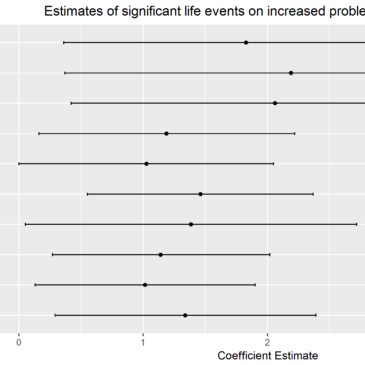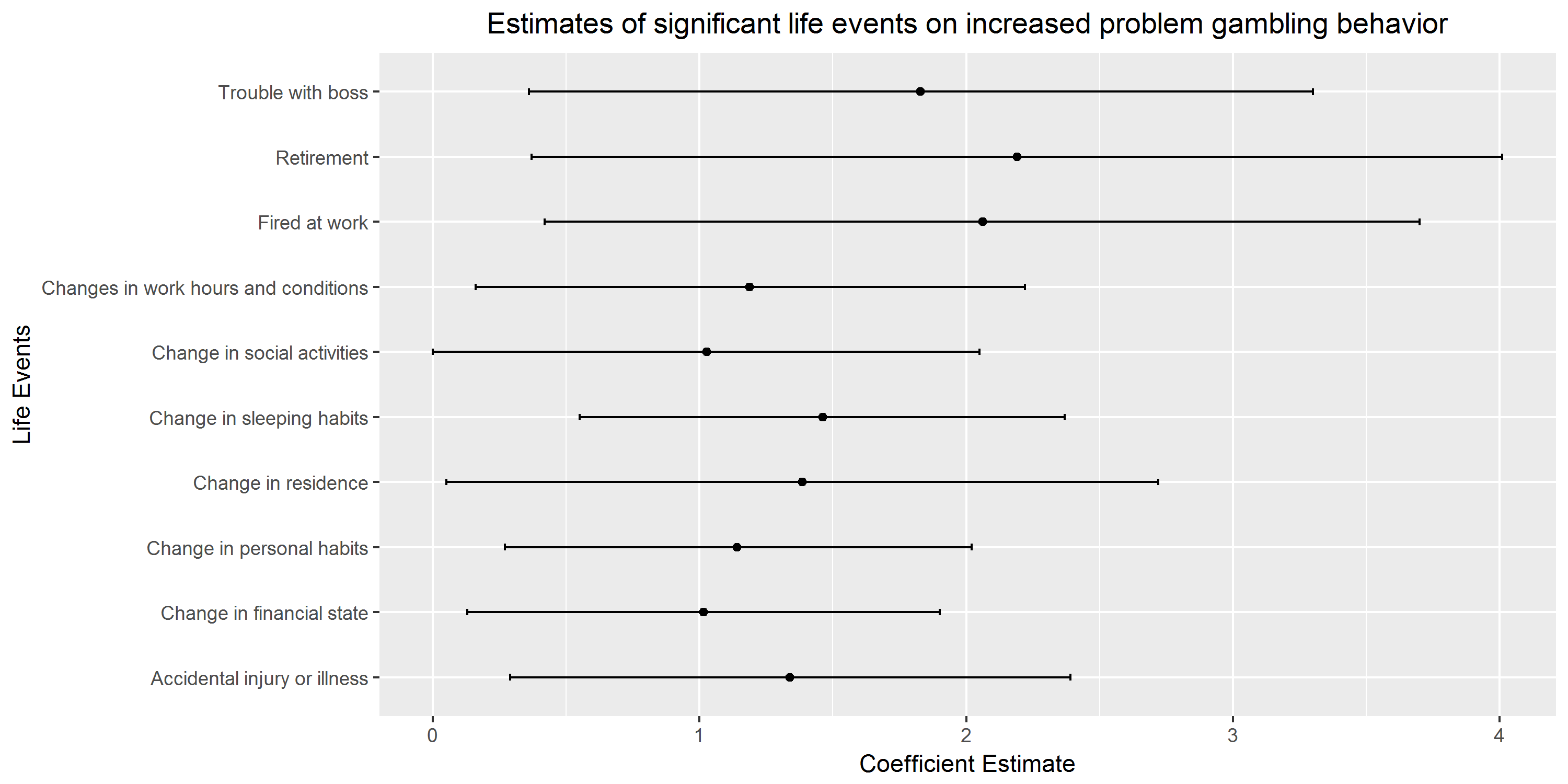Gambling behavior is rarely stable and, instead, often changes over time. It can be difficult to predict whether someone might develop, or overcome, a gambling problem; however, research has identified a variety of “life events,” such as traumatic experiences and major accomplishments, that might play a role. This week, as part of our Special Series on Gambling Disorder, THE WAGER reviews a longitudinal study by Christelle Luce and her colleagues that examines the cross-directional relationships between life events and gambling behavior at three different points in time.
What is the research question?
Do life events predict changes in gambling behavior?
What did the researchers do?
Luce and her colleagues completed 3 telephone interviews, each one year apart, with 250 people drawn from a large probability sample of adult residents of Quebec, Canada. Subjects answered questions measuring their gambling status using the Problem Gambling Severity Index (PGSI). Subjects reported whether certain life events (e.g., deaths in the family, losing one’s job, retirement) had occurred during the past 12 months. The researchers used structural equation modeling to determine whether the number of life events an individual reported at Time 1 was predictive of their PGSI score at Time 2, while also taking into account that individual’s PGSI score at Time 1. They also used linear regression to examine the relationship between life events reported at Time 2 and PGSI scores at Time 3.
What did they find?
They discovered that life events in the year before Time 2 predicted increased PGSI scores between Time 2 and Time 3, even when taking into account PGSI scores at Time 2. Of the individual life events that were examined, retirement was the strongest predictor of increased problematic gambling behavior, followed by job loss, and having trouble with one’s boss. None of the individual life events predicted decreased problem gambling behavior.
Figure. Estimates of significant life events on increased problem gambling behavior. The circles in the figure represent model coefficients and the lines indicate 95% confidence intervals. Only statistically significant coefficients are reported. Click image to enlarge.
Why do these findings matter?
This study demonstrates that life events precede changes in gambling behavior in a predictable way. This makes it important for clinicians treating addictive behavior to monitor what is happening in their patients’ lives. Doing so will enable the best possible treatment. Perhaps one of the most surprising findings of this study was that a seemingly positive life event (retirement) was the strongest predictor of increased gambling problems. Some might not find this surprising at all. Speaking about retiring professional athletes, NBA great Charles Barkley suggests that even the minor negative aspects of life events such as retirement, like boredom, can lead to problematic behavior.
Every study has limitations. What about this one?
The authors report that many life events found to be associated with problem gambling (e.g., death of spouse, divorce) in previous research were not found to be significant in their study, which was likely because too few respondents reported these situations happening to them. Also, although the study’s sample was initially representative of the general population in the first wave of interviews, younger participants and participants who were employed were more likely to drop out, which limits the generalizability of the study’s findings.
For more information:
If you are concerned that you or a loved one has a gambling problem, please visit the National Council on Problem Gambling. We provide free, anonymous resources, including gambling screening and self-help tools. You can find them here.
— Timothy Edson
What do you think? Please use the comment link below to provide feedback on this article.





